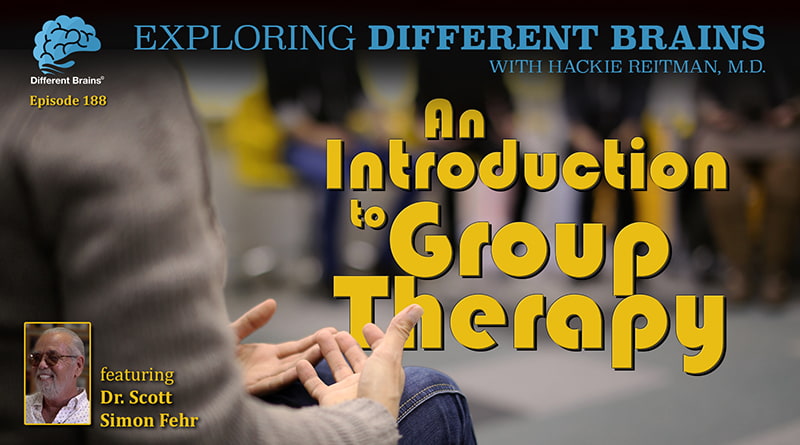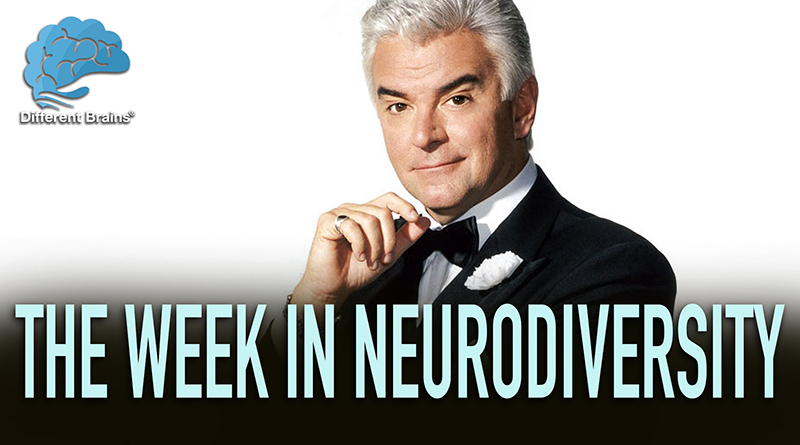An Introduction to Stress Management, with Dr. Marsha D. Brown | EDB 194
Dr. Marsha Brown covers basic stress management.
(14 minutes) Dr. Marsha D. Brown is a Florida Licensed Psychologist with specializations in forensic and clinical psychology. She has extensive experience in the assessment, evaluation, diagnosis, and treatment of children, adolescents, adults, and families across a variety of settings. Forensically, she conducts psychological evaluations in family, criminal, and civil court. Dr. Brown discusses some basic challenges people face with stress, and leads Dr. Hackie Reitman through a mindfulness session.
For more about Dr. Marsha Brown: drmarshabrown.com
AUDIO PODCAST VERSION:
Or look for us on your favorite podcast provider:
iTunes | Stitcher | SoundCloud
FULL TRANSCRIPTION
Meeting Dr. Marsha D. Brown
DR. HACKIE REITMAN (HR): Hi, I’m Dr. Hackie Reitman, Welcome to another episode of Exploring Different Brains! Today we have my friend, Dr. Marsha D. Brown, who’s a licensed psychologist and she’s going to tell us all about forensic and all kinds of psychology! and we’re even going to learn about stress today. Marsha welcome to Exploring Different Brains.
DR. MARSHA BROWN (MB): Thank you! Thank you for having me.
HR: Tell us what you do and give yourself a proper introduction.
MB: Okay, wow. So I do a lot of stuff. I am a licensed psychologist, I have a specialization in forensic and Clinical Psychology. So with a forensic that’s basically– I work with criminal family and civil court cases, So I do a lot of psychological evaluations, figuring out depending on what the court question is. So for say, family record, I do what used to be called custody evaluations, or psychological evaluations for criminal court. I do competency evaluations, and then for civil court mostly psychological damages those sorts of things. But what I also do is I teach, so I used to teach undergraduates and graduates students. But now since I’ve been down in Florida for the past four years or so, I teach professionals, and most of what I teach has to do with stress management and mental health.
What is Mental Health Maintenance?
HR: I also note that you’re dealing with something called mental health maintenance. Could you elaborate on that?
MB: Yes, so mental health maintenance. Mental health management is just basically the idea that most of us have hundreds of things to do with any given time. And we have to understand how our stressors, how running around and having you know so many different things on our plate, that how those things can affect our mental health, and then using that knowledge to be able to manage our mental health, and make sure that we are making sure that we’re mentally well.
The Basics of Stress Management
HR: Well, something I’ve been trying to get a handle on myself, rather unsuccessfully, is stress. So using me for a guinea pig, let’s talk about how we can help our listeners and viewers deal with stress.
MB: Sure. Well first and foremost, we’re all going to have stress. We can’t get rid of it, right? Because stress is a natural part of life. If you’re living and breathing you have some amount of stress, okay? We have things that are considered a good stress, which would be for a lot of people like getting a new job that they wanted for a long time, or buying a house and moving into it. Cause that’s been their dream for a really long time. So those things can be considered good stress or tolerable stress. And then you have the other things, so that’s for–you said we’re using you as a guinea pig, so I’m sure you have all sorts of your own deadlines that you wanted to get things done in a certain amount of time. You also, from what I know, travel a ton, you’re always running around, you always have a bunch of speaking engagements, and you’re teaching here and you’re doing this and you’re doing that, kind of on the right track.
HR: She’s getting warm. (Laughs)
MB: Okay so, with all those things we have on our plate at any given time, we have to make sure that we are taking time for ourselves. And we have some down time when we’re able to disconnect from all the craziness that’s going on. So that’s disconnecting from our phones, disconnecting the computer, just disconnecting from the internet and just having time to just be and to relax.
Boundary Setting and Stress
HR: And what advice would you have for people who have been bad at setting boundaries?
MB: Bad at setting boundaries in terms of having that time to connect? So for a lot of people, they rely on their calendar. And so that can be used as a tool when it comes to stress management and making sure your mental health is okay. So if you know that you’re a person who is not just say “I’m feeling a little overstimulated, I need to go and take a walk. So that I can sort of relax and bring myself down.” Then why not schedule it? So have a specific, set times during the day that you just take even a 15 minute break. Even a 20 minute break. Any short period of time that you’re able to sort of calm down, relax, and sort of regroup. And then, figuring out within that time where it’s fifteen minutes, it can even be 5 minutes. But what to do within that time to bringing your stress level down.
The Importance of Communication
HR: What are some tips you might have for someone out there who’s listening to this, or watching this, or reading the transcript of this, since you know, I’m having these mental health challenges. What advice do you have for them?
MB: I would say find somebody to talk to, tell somebody about it. To help whatever it is, somebody that you trust. Somebody that you feel like knows you well, or somebody that you feel like you can have an honest conversation about how you’re feeling. But I would definitely say that do not keep it inside. Do not say “Hey, maybe it’ll pass.” I think the first step is telling somebody so you know, get whatever help you need to get back to your basic functioning.
HR: How can people learn more about you? And what you do?
MB: Uh, you can go to DrMarshaBrown.com. That’s my website. Or you can follow me on twitter or instagram. It’s @doctormarshabrown
Managing Stress Through Mindfulness
HR: One of the most deleterious things in the universe is stress. For all of our overall health, for our longevity, for our happiness. Anything you what to measure. And one of the tools that’s prominent – especially since one of the technology in brain scanning, and so forth, have caught up with objectifying the notions we have. Let’s talk a little bit about the tool that’s proven to be so helpful to many: mindfulness.
MB: Yes. So mindfulness is a practice that is very popular right now. It was part of several different types of treatment, like logical treatments for example. We’re going for depression, for anxiety. But it’s just being able to take not of what’s going on within your body, in your environment. And so it’s been used because it can be very helpful. Especially, for example, we’re talking about stress. So for people with anxiety who are sort of feeling very anxious, having a lot of emotions, thinking about, “okay, but I didn’t do this, this, and this.” Then tomorrow, “I forgot I have this thing and then next week, I’m supposed to be doing all of these things. How am I going to keep up with it?” But bringing yourself back into your moment. And sort of noting what’s going on the inside, in terms of feelings and emotions, being present in the moment. And then allowing all that other stuff to be where it is in the future and not right here, and not right now.
HR: So, right here on Exploring Different Brains, let’s take us through–put you on the spot to do a two-minute mindfulness training.
MB: Okay, there are a bunch of things that are related. So, one of the things that I like to do that because these tools, are only helpful as long as people can use them in different situations, right? I mean if it’s something that you have to go to a very special building and room at a certain time when the sun just right, people aren’t going to use it. Because people have lives, and they have things to do. So one of the things I find helpful is just very quickly doing some deep breathing. And so why don’t we start with that?
HR: Let’s do it.
MB: We’ll start with deep breathing, alright. So just go ahead and really quickly, and sit up straight with both your feet flat out on the floor. And then – perfect! Your posture right now is perfect. Your hands, your palms are flat against your thighs. So just go ahead and breath deeply, breathe in, and then just go ahead and exhale.
Okay, so what we’re going to do is breathing in, and then out. Then breath in through your nose and out through your mouth. Okay, so I’m going to keep talking, but, you go ahead and keep breathing deep in through your nose and then out through your mouth, right.
Okay, so what you’re doing during these exercises really, when we get stressed out, and we’ll get kind of anxious. Our breathing comes more shallow, we’re breathing faster and we’re breathing. In, and out. And it almost becomes similar to panting. But then when we stop, and we force our breath to go a little bit deeper, it calms us down. It slows down everything that’s going on inside of us. So, what I can do this next couple minutes is what I want you to inhale for three, and then exhale for four. Okay?
So, you can do that on your own in your own time. So, in, two, three, and then out, two, three, four. In two, three. And out. two, three, four. Now go ahead. Yeah, that’s perfect. Seems naturally want to close your eyes now. So go ahead and close your eyes. Mhmm. And then whenever you’re ready, in two, three and out. Two, three, four and then just keep on concentrating on your breathing. That’s all I want you to think about right now. Is the in for three and then out for four. And then what you’re eventually going to work on is breathing in for four and then out for five.
So, the idea for this is that you’re trying to slow your breath down and your trying to deepen your breathing. And just as a note, your mind might start to wonder. That’s perfectly normal. Just whatever it does, note that your mind has gone off to something else, whether it’s shopping, whether it’s what you have to do later today. No matter what it is, just note it and bring it back to breathing.
HR: Well, I fell asleep.
MB: Did you? (Laughs) That’s excellent! That’s excellent!
HR: You’re good! You’re good!
MB: Or maybe just boring, I don’t know.
HR: No, no.
MB: But, that’s what’s designed to do. It’s just in the moment, and you know, that didn’t take us long. It was about two minutes right? And so, just the idea of when things are crazy around you, you have all sorts of deadlines to meet. You have a lot of stuff going on, you have a lot of stuff on your plate. Just taking a minute, two minutes, five minutes, however long you have and just, focus on your breath, deepening your breath. It’s amazing that for a lot of people are just brings you a certain sense of calm. Now you fell asleep, did you feel any sort of decrease in stress, do you feel any sort of release from that. How did that make you feel?
HR: Makes me feel great, I feel recharged.
MB: Yeah, yeah, that’s great.
HR: You’re good, you’re good.
MB: Thank you, thank you. Yes.
HR: Is there anything that we haven’t covered that you’d like to cover today?
Knowing When to Ask For Help
MB: About stress and mental health? No. I think that one of the most important things is to just have a dialog about it, I think that there’s so much stigma on everyone you know. That’s trying to put on their game face, 24/7, and I think it’s okay to sometimes say, “Alright, I’m really stressed out. I’m not doing well, I’m gonna do whatever it is.” Take a half-a-day off or even as something as much as full day off or as little as ten minutes for yourself. And I know that sometimes, you’ll seem like you can’t do that because my job or my kids or my spouse, or whatever the case may be. But understanding that, in the long run, it’s an investment in yourself. And I guess we could also just sort of power through it. But at some point, you reach the end of the road where you just can’t do it anymore. And so, I think it’s really important to just have the discussion about how you’re feeling, checking with yourself, checking in with other people. To just sort of figure out how you’re feeling. And if you’re not feeling great, that’s okay to say that, and figure out where to go from there.
HR: It’s been such a pleasure to have you here, Dr. Marsha Brown.
MB: Thank you!
HR: I’ve learned so much today and I hope our listeners and viewers have also.
MB: I hope so as well.
HR: And I hope you come back and visit us again sometime soon. Thank you so much.
MB: Anytime. Thank you!




